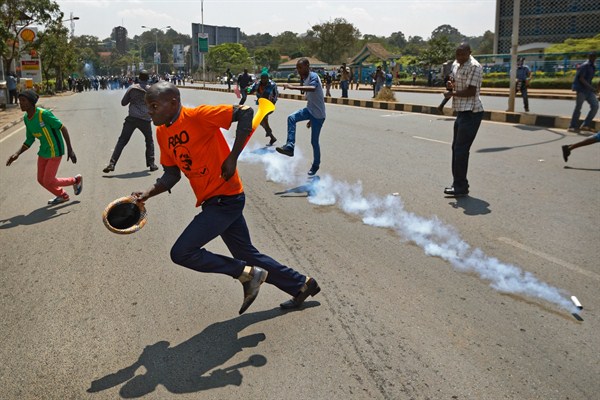Kenya’s long-running political drama is sinking deeper into crisis, testing the outermost limits of the country’s election laws. Its highest court seemed at first to have struck a rare victory for judicial independence with its declaration that August’s presidential election, which gave a second term to President Uhuru Kenyatta, was “invalid, null and void,” necessitating a rerun. But as the weeks have passed, the Supreme Court ruling looks more like a mixed blessing that guaranteed a prolonged political morass.
The new vote was supposed to take place before the end of October, but very few of the underlying problems identified by the court have been resolved, while negotiations between the rival candidates have gone mostly nowhere. The repeat poll would be “much, much less credible” than the original, predicts Joshua Kivuva, a political scientist at the University of Nairobi. “Anybody who imagines that [the electoral commission] can conduct better elections—given less time, given the more conflicting political environment, given the fact that there is fatigue in the country—must be out of his mind.” In all likelihood, the country has appeared to be heading toward a second flawed election in three months.
And that was before opposition leader Raila Odinga backed out of the vote earlier this week, following through on his threats. The Independent Electoral and Boundaries Commission, or IEBC, remained irredeemably broken, he claimed, and had shown no intention of responding to the demands of his coalition, the National Super Alliance, known as NASA. Nor, he insisted, had the ruling Jubilee Party shown a commitment to act in good faith with the new poll. “All indications are that the election scheduled for 26 October will be worse than the previous one,” Odinga said on Tuesday.

